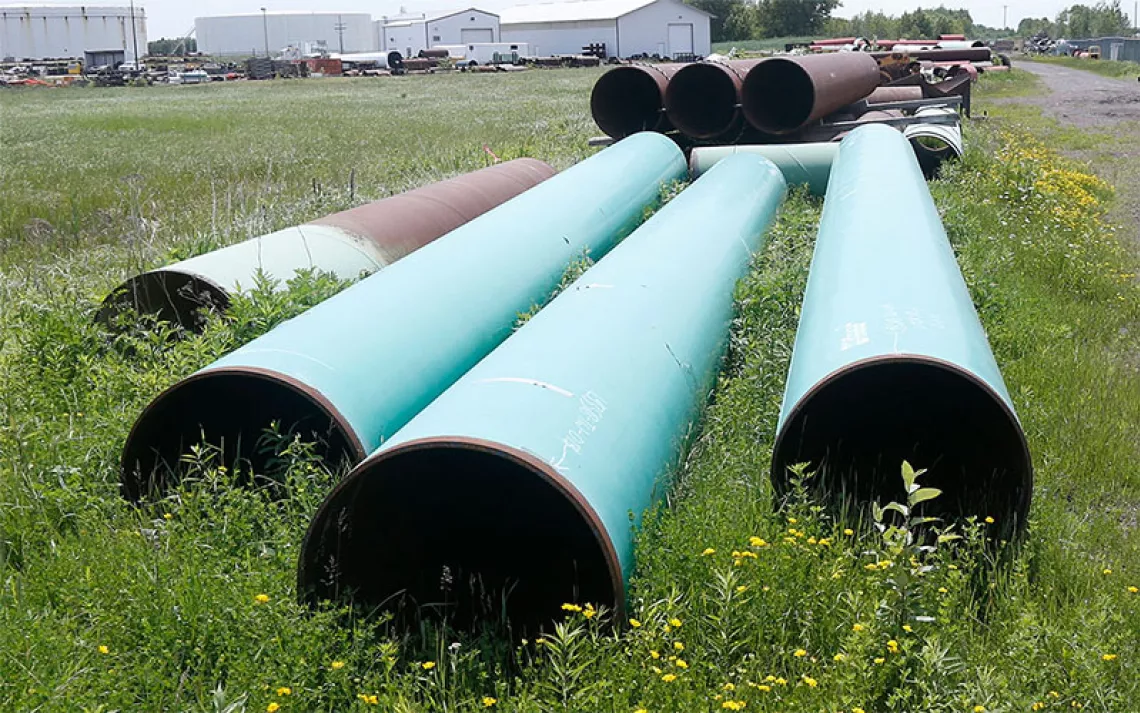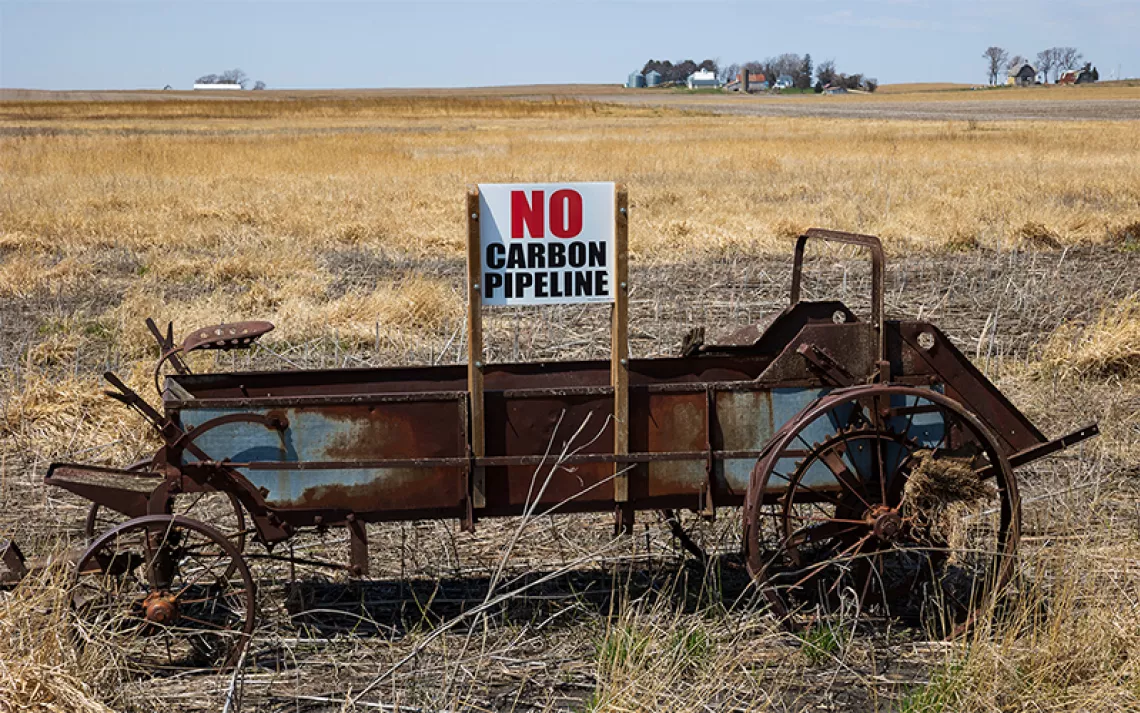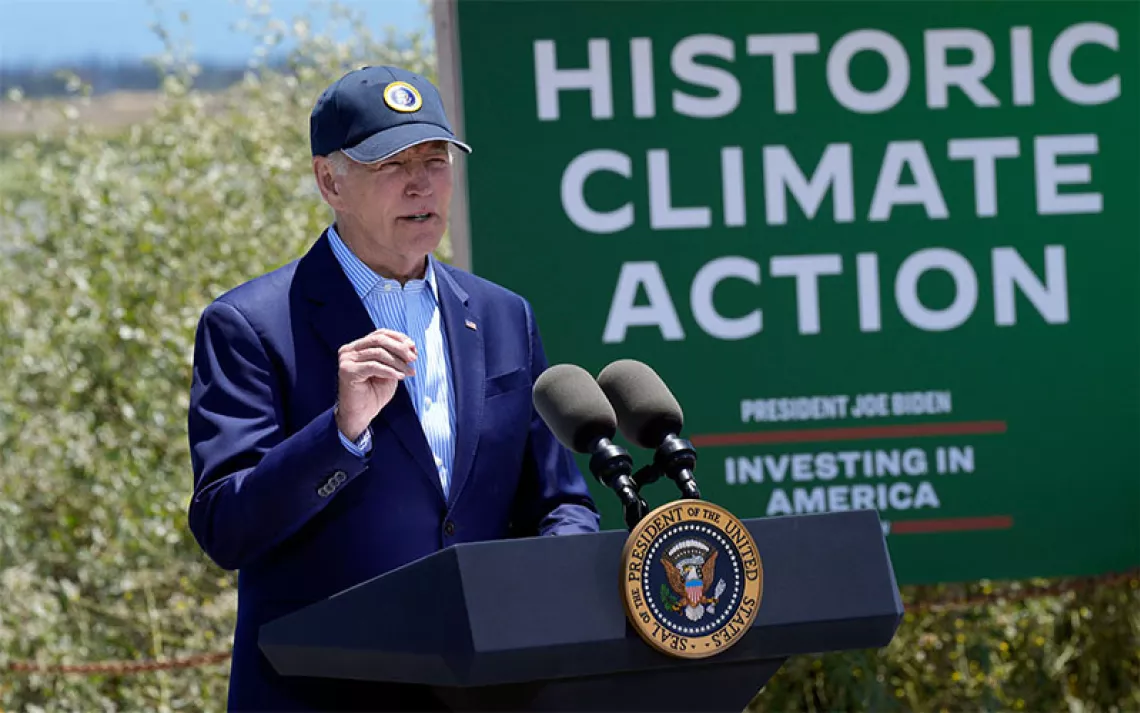DAPL's New Lessons
A court ruling reveals a major weakness in the Trump administration

Photo by iStock/7Michael
Last Wednesday, James E. Boasberg, a federal judge in Washington, D.C., ruled that the Trump administration failed to follow legal precedent when, four days after the presidential inauguration, Trump signed an executive order expediting the approval of the controversial Dakota Access Pipeline.
It’s not clear yet how much of an effect this ruling will have on the actual oil that has been pouring through the DAPL pipeline since May. Boasberg declined to make that call during last week’s ruling, preferring to wait until delivering a more comprehensive decision sometime this week. The case is another example of just how many times since January the Trump administration has been blocked by the courts.
It’s also a reminder of how legally naive the administration’s political moves have been. In expediting DAPL, the administration ignored a memo written in December by Hilary Tompkins, the top lawyer for the Interior Department, that anticipated Boasberg’s ruling with impressive prescience. Over the years, multiple federal court cases have backed up the rights that the Sioux have to fish, hunt, and use the waters that the pipeline was being routed under, Tompkins wrote. “The Corps must consider the possible impacts of its DAPL permitting decisions on these reserved hunting, fishing, and water rights.”
Or, as Boasberg put it, “Although the Corps substantially complied with NEPA in many areas, the Court agrees that it did not adequately consider the impacts of an oil spill on fishing rights, hunting rights, or environmental justice, or the degree to which the pipeline’s effects are likely to be highly controversial.”
The presidential memo came at a critical point for Energy Transfer Partners, the company behind DAPL. Without it, a $2 billion investment deal from Enbridge (a major Canadian oil and gas infrastructure company) and Marathon Petroleum could have evaporated by March 31, leaving ETP and its shareholders in the lurch. Federal disclosure forms showed that Trump was one of those shareholders, though Hope Hicks, a spokesperson for the administration, maintained that the president sold his ETP stock in mid-December.
Now ETP has its pipeline, and only time will tell whether it’s destined to become a big, empty underground straw. The day Boasberg’s ruling came out, ETP's stock plummeted to the lowest it’s seen in a decade.
But ETP’s stock was waning even before the ruling, a state of affairs that can at least partly be credited to several divestment campaigns that had already cut their teeth on other contentious pipelines, like Keystone XL. The divestment campaigns, like the lawsuit that led to this ruling, are a vindication of the “everything but the kitchen sink” school of political organizing, in which a single problem is approached in many ways, by many different groups. Whether or not the Dakota Access Pipeline gets an order to shut down this week, the story is far from over.
 The Magazine of The Sierra Club
The Magazine of The Sierra Club







